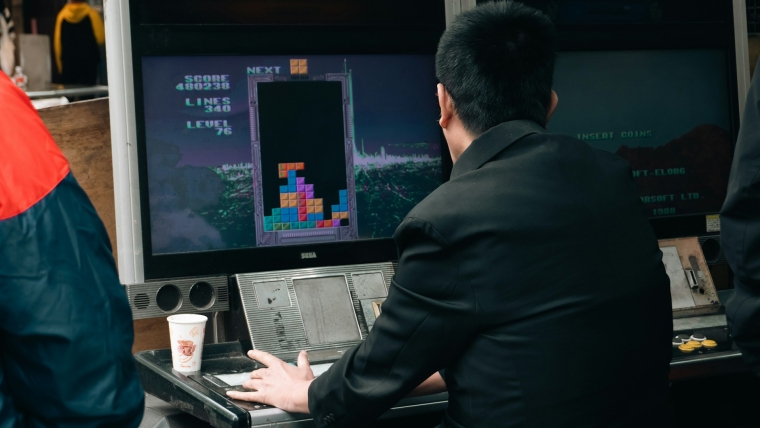
Labour would increase subsidies for video game developers and add small-scale studios to the scheme as part of an economic plan to support new industries and jobs in New Zealand.
The Game Development Sector Rebate (GDSR) was established by Labour in 2023 to fight back against similar subsidies offered in Australia, which were luring Kiwi studios abroad. It refunds NZ-based studios 20% of development spending above $250,000 and up to $3 million.
Taxpayers covered about $44 million of costs for about 35 firms across fiscal years 2024 and 2025, during which time the number of employees in the sector rose 20% to 1,300.
Industry feedback said the rebates helped larger studios hire staff and explore new projects but the minimum spending threshold made it difficult for small studios to scale up.
The Labour Party announced on Wednesday it would lower the threshold to $200,000, increase the maximum rebate to $4.5 million, and lift the rebate rate to 25%.
In a press release, party leader Chris Hipkins said keeping businesses like game studios in New Zealand was a core goal of the party’s economic plan.
“The gaming sector is on the way to being a one billion dollar industry, employs more than a thousand people and is building global brands from the ground up. It’s crucial we keep those opportunities and that talent here in New Zealand.”
On Monday, the Labour Party also announced a new state holding company which would leverage the Crown’s commercial assets to make additional domestic investments.
Reuben Davidson, the party’s tech and innovation spokesperson, said the sector had grown its revenue by 86% (it was $513 million in June 2024) and created hundreds of jobs.
“We recognised early on the potential of New Zealand’s game developers to compete globally, this expansion shows we’re serious about keeping that momentum going,” he said.
In Parliament on Tuesday, Davidson questioned government ministers over why they hadn’t chosen to increase the game development sector rebate and asked how many jobs would be lost to Australia as a result.
He claimed a recent review had said “raising the cap would ensure New Zealand remains globally competitive while continuing to benefit from the revenue, jobs, and innovation they generate”.
This isn’t exactly correct. A two-year review by the Ministry of Business, Employment, and Innovation said it was “too early” to identify economic impacts of the GDSR on the sector.
However, it said initial interviews and data indicated the rebates had led to additional activity and “dampened interest” in relocating to Australia.
“Businesses report diverse uses of the funding from GDSR, such as retaining or hiring new staff, using contractors, and substitution for alternative funding arrangements like bank lending,” MBIE said in the report.
It was only feedback from the rebate recipients themselves that suggested making the settings more generous; it wasn’t a conclusion of MBIE’s report.
Treasury opposed the subsidies when they were first established. It warned the game development sector may outbid other industries for workers, only shifting economic activity rather than creating it.
National MP Louise Upston, speaking on behalf of the Minister for Science, Innovation and Technology, told Parliament the existing settings were enough to protect the sector.
“I'm not sure that member [Reuben Davidson] has his ears on, because I have said that employment has grown 29 percent in the last year. The industry has earned $513 million in 2024 and is projected to surpass $750 million this year. It's great news, the sector is in great heart, and we're supporting them”.
A fact-sheet released by Labour said expanding the subsidies would cost an extra $11 million each year (on top of roughly $22 million) but would not exceed the $40 million limit set in recent budgets.
4 Comments
It's not an industry.
And it produces nothing.
Invest?
This is where economics has a lot to answer for/to.
How is not an industry?
Like most, it is parasitic on the real flows - which are energy and resources. Those are both coming from finite (therefore depleting) stocks, and taking more of the flow for maintenance, per time, as well.
You can print proxy, or snaffle someone else's (which is what you do as a landlord, or renting Eden Park, or charging for gaming).
Because the ultimate destiny for proxy is to be exchanged for parts of those two flows (for stuff to consume), the ownership of it is immaterial. So parasitism is a zero-sum game. Those who benefit, see it as a win. But overall it ain't anything. Just as Luxon got it wrong re Eden Park.
A good example of the ignorance of economics - which is what your comment is based upon - can be found in Peter Schiff's How an Economy Grows and why it Crashes'. His island/fish analogy fails completely to explain where all the infrastructure comes from. You print money and material appears. Just like that. Magic. It worked until it is beginning to isn't.
Government picking winners. What could possibly go wrong?

We welcome your comments below. If you are not already registered, please register to comment
Remember we welcome robust, respectful and insightful debate. We don't welcome abusive or defamatory comments and will de-register those repeatedly making such comments. Our current comment policy is here.